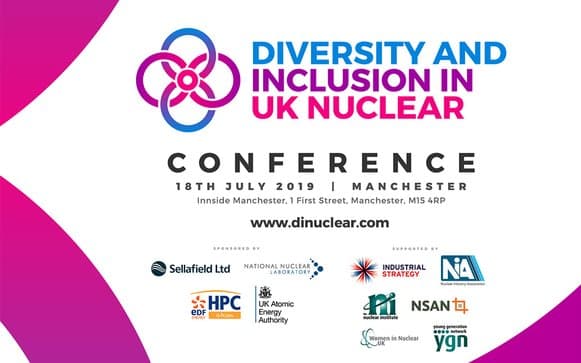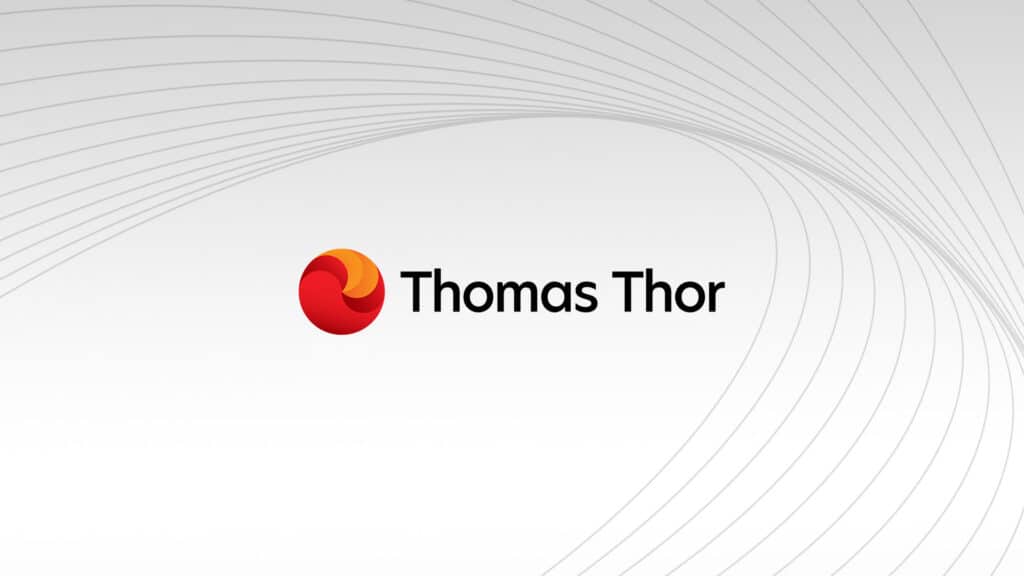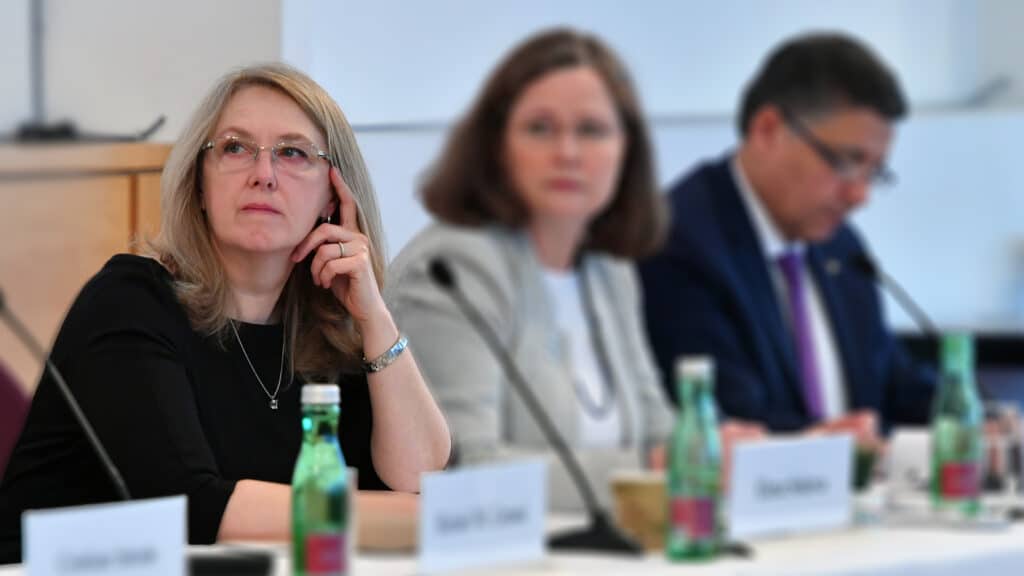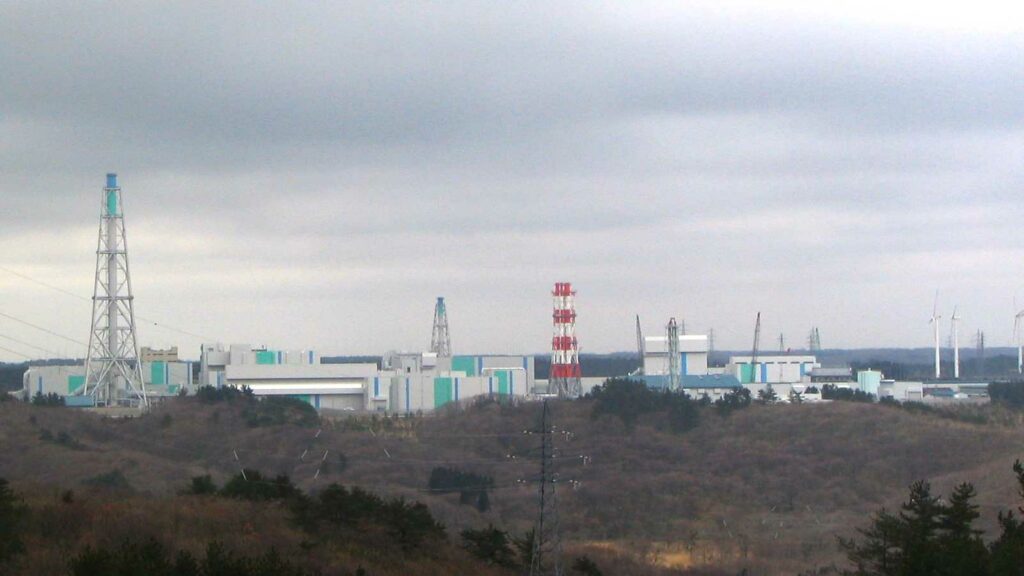5 take-aways from the Diversity & Inclusion in UK Nuclear event

Firstly, thank you to everyone involved in making the event in Manchester on 18th July possible. The event was funded by our sponsors – Sellafield Ltd, UKAEA, NNL and EDF HPC, and was a success due to the active contribution of the diverse range of attendees, speakers and workshop leaders. The spaces at the event were limited to 60, with others able to watch the presentations via an internet live stream. This article is for those that were not able to attend and have an interest in supporting equality, diversity and inclusion (E,D&I) in the UK nuclear industry. The following are some of the take-aways from the event:
Engaging the majority is crucial – One of the workshops, delivered by Mark McBride-Wright of Equal Engineers, was on the topic of engaging the majority. It seems that minority groups are the ones taking the initiative to drive and progress E,D&I. It is understandable that those from minority groups have been motivated into action before the majority, but we are now far enough along to know that an equal, diverse and inclusive workforce is beneficial for everyone. How can we shift this dynamic so that we all, especially the majority, are bought in and contributing? In the workshop, many practical steps that we can take were identified and shared. A summary of these can be found in a dedicated article on the www.dinuclear.com website.
Unconscious bias training should be available to everyone in the industry – Another of the workshops, delivered by Irene Afful, focused on unconscious bias. By the very definition, this refers to biases we have picked up through our life experiences and that we may not even be aware of. A crucial point is that there is nothing to be ashamed of when it comes to unconscious bias, and that we should not be afraid to identify and recognise our own. Unconscious bias is one reason that we gravitate to hiring people like ourselves, which is a barrier to equality, diversity and inclusion as it perpetuates the majority in teams and in entire organisations. Two actions that we can all take are to identify and recognise our own unconscious biases, and to ensure that there is diversity in interviewer panels. Even if there are only two interviewers involved in the process the opportunity exists to have diversity.
We need to develop a support network – The same suggestion came up from several of the attendees at the event in Manchester. It would be great if we had a way to share information, case studies, best practice and practical examples of how different people, teams and organisations are progressing with E,D&I initiatives. This sharing could be amongst stakeholders in the UK nuclear industry and could also include input from other industries and other countries. The sheer amount of information, and indeed information sources, is bewildering in our modern information age. One of the actions taken away from the event is to look at how to gather relevant and useful information and then make it available to stakeholders in the UK nuclear industry in a way that it is easy to digest and to turn in to practical value adding activities. Watch this space….
There are many minority groups that deserve recognition – One of the many thought provoking realisations that came from the event was that there are many more minority groups than immediately come to mind for most people. Deborah Beveridge from EDF led an excellent workshop on flexibility and dynamism in work, delving in to how flexibility in working practices can support E,D&I. For example, it was discussed how a company policy that treats those with children differently to those without children in terms of flexible working allowances is not necessarily fair. It shows that sometimes the most well meaning of policies and actions can create feelings of isolation and unfairness amongst others. Defining every form of diversity and every minority group is a significant undertaking, and nearly everyone is in a minority group in one sense or another. A good starting point is to simply put ourselves in the shoes of those around us and constantly be aware of how our actions or behaviours might make them feel.
The updated conference format was a success – The event in Manchester was filmed and broadcasted live on the internet. The cost of doing this is a fraction of what it was even 5 years ago and made the event more inclusive and available to those that could not be there on the day. The videos of the four presentations can be found on www.dinuclear.com. The presentations are concise, engaging and tell the stories of the presenters. They are available for people across the UK nuclear industry to watch at their leisure in the coming weeks and months. It is clear that we need to engage with a wide audience, especially the majority, so this type of event format is a proven formula for future events. In addition, the workshops provided practical take-aways, some of which have been described in this article.
This article was written by Callum Thomas and Monica Mwanje. Any feedback, questions or suggestions are very welcome. Please send them to info@dinuclear.com
Share this article
Related articles
Help us grow and achieve your potential at a values-driven business.




